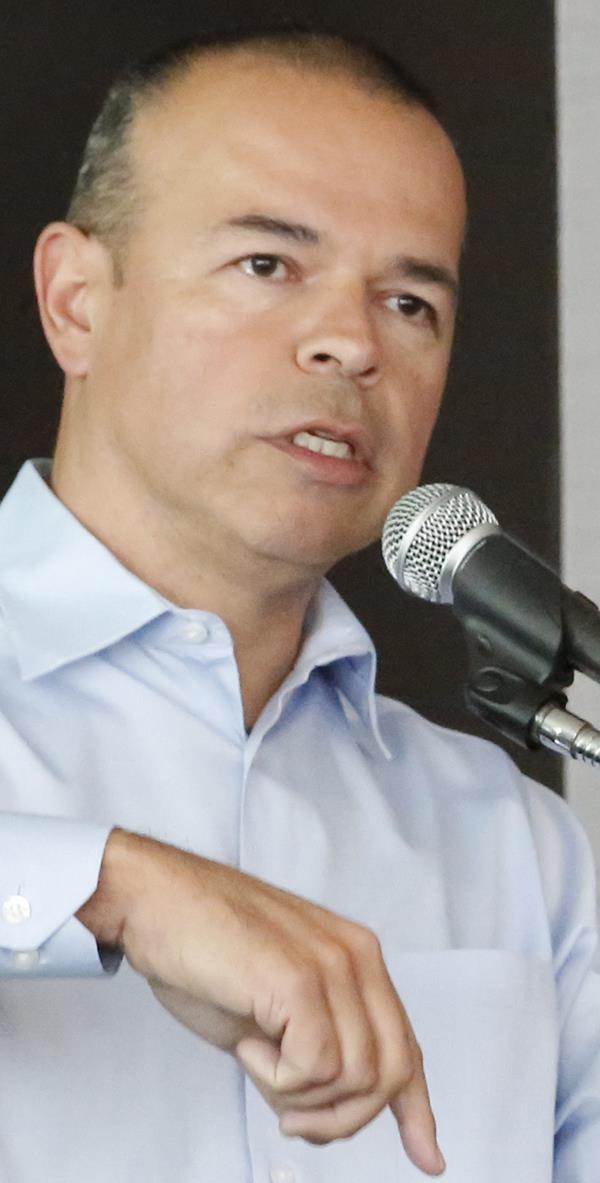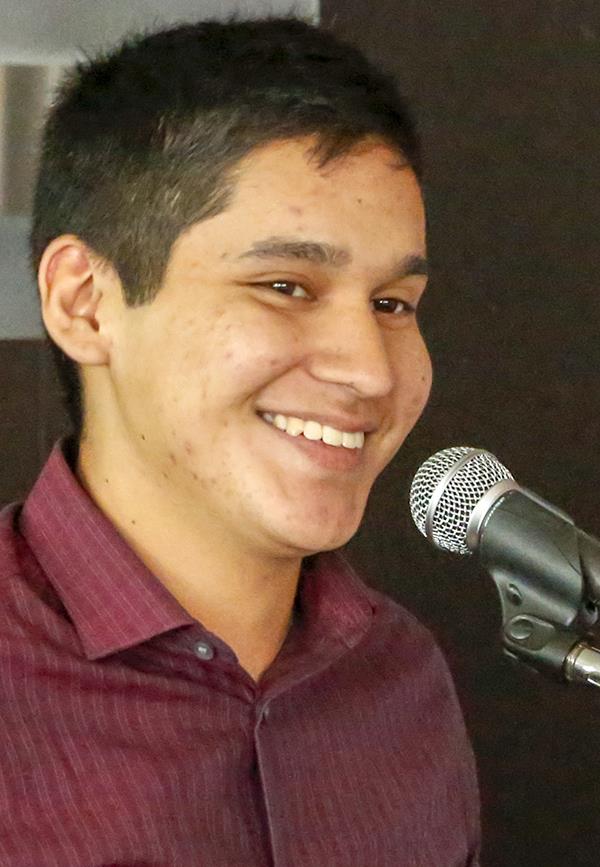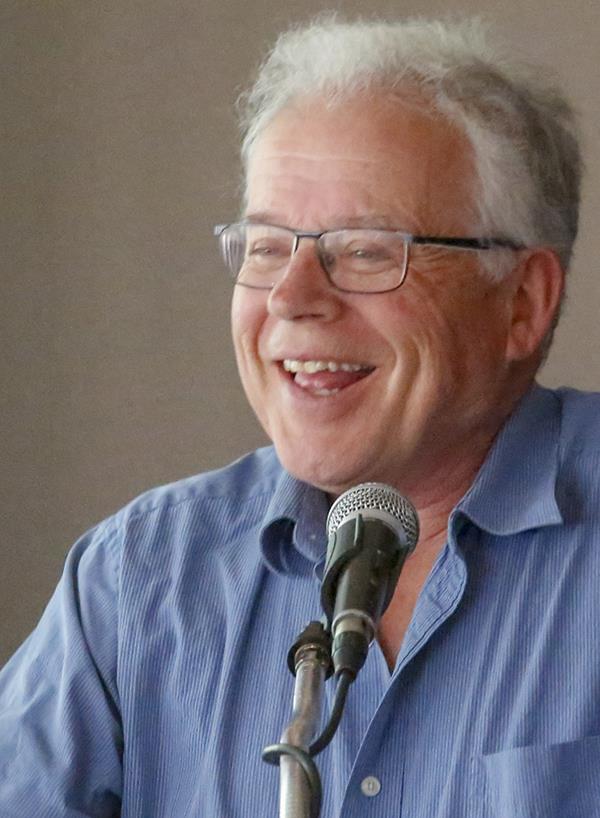Guest Speaker: Chris Beaton, Executive Director, Nanaimo Aboriginal Centre
 Chris began with acknowledging that we are on the Snuneymuxw First Nation territory. He also thanked Rotary for their support in the community, across the province, country and around the world.
Chris began with acknowledging that we are on the Snuneymuxw First Nation territory. He also thanked Rotary for their support in the community, across the province, country and around the world.
The Nanaimo Aboriginal Centre offers community based learning and the program Paddling Beyond has been around for 3 years. There are 90 students in the program takes young people out of their comfort zones.
For the Paddling Beyond program they had two main criteria for choosing a location for the participating students to travel to:
1. It needed to be somewhere relatively far
2. It had to have the opportunity to connect with other Indigenous cultures.
Based on the criteria, they chose New Zealand as the inaugural trip for the program which, up until that time, students had only travelled to other towns.
Of the 11 students that ended up going on the trip, 8 had never flown before. Several had never been off the island or outside of BC.
Chris shared that New Zealand has three official languages: English, Maori and sign language. By comparison, there are 51 First Nations on Vancouver Island, 256 in BC, 600+ in Canada and 222 First Nation languages which makes it very difficult to choose which you would focus on. As a result of Maori being the common language spoken among the Indigenous peoples of New Zealand, it is much easier to connect.
A total of 22 people travelled to New Zealand. To help pay for the trip, they had support from many groups and the youth that travelled raised funds through bottle drives,hot dog sales, dinners etc. Fundraising gave them another opportunity to learn. They took the time and effort to earn the trip and built up their public speaking skills by speaking to potential funders and through interviews with the media. The youngest person to travel was 16 years old.
The trip was 10 days and during that time they got to spend a few nights at a Maori "marae" or meeting place. While there they stayed in a "wharenui" which is a communal space which serves many functions including spiritual. As a result, they were immersed in the Maori culture right away including traditional foods which included pumpkin in almost every meal.
They also went to Rotorua, Hobbiton, Bay of Islands and other locations. There were a number of Maori cultural centres which were owned and run by Maoris.
Through the programs, and especially Paddling Beyond, the students are encouraged to share and be proud of who they are and where they come from. They saw this in action with the Maori which reinforced what they spoke about back home in Nanaimo. They were role models for the students. Over the course of the trip, the students took on more leadership and responsibility.
These trips will be annual and next year they are going to Albuquerque, New Mexico to the largest Pow Wow in the world and then onto Arizona.
 Chris then invited Trent Warren Jack up to speak. Trent is with the Stz'uminus First Nation and has been on the Youth Advisory Council for the past few years and is a youth mentor. The trip to New Zealand was his first time flying. He said that the Maori have a similar spirituality and ancient teachings to what is on Vancouver Island. He admires their tourist attraction program and feels it is something for them to work towards.
Chris then invited Trent Warren Jack up to speak. Trent is with the Stz'uminus First Nation and has been on the Youth Advisory Council for the past few years and is a youth mentor. The trip to New Zealand was his first time flying. He said that the Maori have a similar spirituality and ancient teachings to what is on Vancouver Island. He admires their tourist attraction program and feels it is something for them to work towards.
He had an opportunity to skip a "waka" which is a Maori canoe and snapped a few paddles in the process. He joked that their paddles are much stronger. He also go to participate in a "Haka" which is the Maori's traditional ceremonial dance. They also got to present their own dances and languages to the Maori and many of the students came out of their comfort zone as the trip progressed. Some who had never sung alongside their families are now more confident and performing and school and gatherings.
Trent then passed the speaking back to Chris. Chris is taking Trent to the World Indigenous Housing Conference in Australia as he feels it is a great opportunity for him to continue to grow and learn. He then shared a story: Three Maori came to Vancouver Island via traditional canoe many years ago and stayed in Hesquiat. They married Nuu-chah-nulth women. In 1990 the Commonwealth Games were held in New Zealand. Tim Paul from Hesquiat was commissioned to carve a totem pole for the games. During the trip, Chris purposely found the location of the totem pole but didn't say anything to the students about its history. Two of the students recognized the style of the art and said it looked like it came from their area. Chris then shared the story of the totem pole.
Parents of the students who went were saying how happy they were with the trip as they came home wanting to learn about their traditions. For some though, they felt disconnected after travelling as a group. Some are in group homes and were missing the camaraderie and support. They have met back up to support the youth and continue building that bond and desire to learn.
 David Drakeford, President of the Board of Directors of the Nanaimo Aboriginal Centre was invited up to say a few words as he was also on the trip and joked that as he was invited along as he is British and so can drive on the left side of the road. He spoke highly of the trip, the organizers and especially of the students who went on the trip. He shared that among visiting guests, a Chief is chosen and Trent was chosen. There was a gathering at the end of each day and everyone got more comfortable each day sharing with each other. Both the youth and the adults grew from the experience and in the final circle every youth said that they want to learn about their culture.
David Drakeford, President of the Board of Directors of the Nanaimo Aboriginal Centre was invited up to say a few words as he was also on the trip and joked that as he was invited along as he is British and so can drive on the left side of the road. He spoke highly of the trip, the organizers and especially of the students who went on the trip. He shared that among visiting guests, a Chief is chosen and Trent was chosen. There was a gathering at the end of each day and everyone got more comfortable each day sharing with each other. Both the youth and the adults grew from the experience and in the final circle every youth said that they want to learn about their culture.
Chris concluded with sharing that the vision of the Nanaimo Aboriginal Centre is to support the realization of a 100% high school graduation rate for Aboriginal students in Nanaimo/Ladysmith.